Welcome to the 11th edition of Oekologie, the blog carnival devoted to the best ecology and environmental science posts of the month from all across the blogosphere. In my time and trials blogging on topics related to birding, nature, and whatever else catches my metaphorical eye, I’ve encountered countless blogs touching on issues of ecology. Yet, very few of these nature/science/enviro-blogs self-select for the Oekologie cohort. I’d like to address this apparent oversight in an edition entitled… You may already be an Eco-blogger!
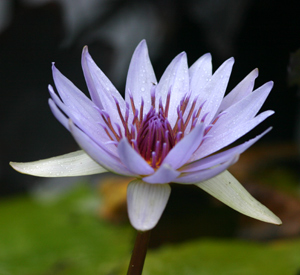 That’s right! If ecology is the scientific study of systems of living organisms and the interactions between organisms and both biotic (other organisms) and abiotic (climate, geology, etc.) aspects of their environment — and it is — then anyone who writes about organismal interactions is probably contributing to the annals of online oikos logos.
That’s right! If ecology is the scientific study of systems of living organisms and the interactions between organisms and both biotic (other organisms) and abiotic (climate, geology, etc.) aspects of their environment — and it is — then anyone who writes about organismal interactions is probably contributing to the annals of online oikos logos.
For example, have you ever written about how certain organisms, perhaps crocodiles, can mysteriously colonize remote bodies of water? Greg Laden has, and that makes him an eco-blogger. Of course, he slipped in some descriptions of injurious abiotic influences on extant organisms, but he uses much more accessible language than that!
Writing about interspecies sex is not exactly a hallmark of this particular portion of the web but when the subject does come up, a true eco-blogger will present his observations in clear, cogent, and above all mature language. Ed Yong of Not Exactly Rocket Science could have cracked wise about how adversity makes strange bedfellows or made salacious insinuations about any port in a storm but instead remarks soberly about how drought drives toads to mate with other species. That’s how an eco-blogger does it.
Whenever an organism interacts with a living or nonliving agent in its environment, ecology may be at work. When birds comes down with botox, or more properly avian botulism type “E” as Jenn Forman Orth tells us, ecological inquiry presents the dirty details. When dolphins turn up in Scotland, snakes remain active through the Tasmanian winter, and animals all over the world adjust to climate change, as chronicled at Planet Doom?, the implications are entirely ecological. When the populations of adaptive species like Canada Geese balloon past manageability, ecology, Nuthatch of Bootstrap Analysis assures us, illuminates both the probable causes and potential solutions. To wit, if you blog about the traits or behavior of a species or genus, you’re probably bio-blogging. Once your subjects act upon other environmental agents or are acted upon, you’re eco-blogging.
Most eco-bloggers tend to talk about how humans impact the global ecology, usually for the worse. Climate change, as we’ve already observed, is a hot topic at the eco-water cooler. So is air pollution, much of which stems from industrial processes and auto and airline exhaust emissions. Oil spills like the recent San Francisco Bay debacle John Beetham writes about are also perrenial points of contention. Even war can be disastrous for the environment; Jacob van Etten explains at Agricultural Biodiversity Weblog how war is bad for seeds while seeds can be good for peace.
This predilection to ponder the harm our species has wrought and continues to wreak on just about every other non-domesticated species in the world explains why environmental science and environmentalism are so often conflated. Both efforts require insight into ecological impacts but whereas one kind of eco-blogger explores the infinite array of ecological interactions, the other focuses specifically on the asymmetry of human intervention. Eco-blogging focusing on sustainability and conservation like my Protect the Commons series suits the estimable Carnival of the Green while science-based subjects like Charlie’s explanation of the Ramsar Convention are more Oekologie-appropriate.
Often, new insights into ecological impacts can trigger environmental understanding and then potential action. For example, GrrlScientist expertly analyzes research that concludes Captive Breeding Negatively Impacts Reproductive Success in the Wild. She then wonders whether the same thing might apply to birds and other vertebrates along with what we need to do to identify precisely how captive-breeding affects these animals and their future reproductive success, and what we can do to help preserve these species.
Of course, we can’t help our native anthropocentrism, which means we can blog about our increasingly high-stakes Water Wars like the Southern squabbles posted at The Infinite Sphere. Sure, humans created the mess through overpopulation, poor planning, and large-scale environmental assault, but at the end of the day, we’ve got to have water, consequences be damned. Thankfully, because we are currently the dominant species astride this planet, we eco-bloggers can joke about our pernicious influence on formerly balanced environments, as Tim Abbott does in Real Estate Gets Real. The ingredients for success are the same for invasive species as they are for real estate: location, location, location!
If there is any justice in this world, this edition of Oekologie has offered you greater insight into your own eco-blogging activities. If you are, in fact, an eco-blogger, welcome to the club! Make it official by becoming a part of the next Oekologie scheduled for December 15th at Behavioral Ecology Blog.

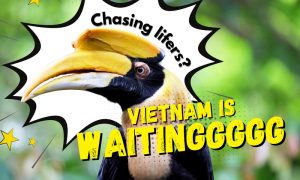


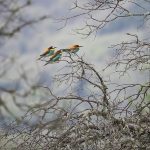
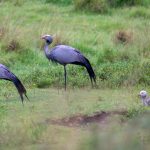
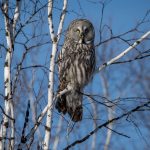


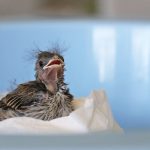
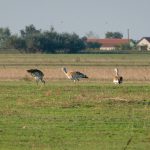
Thanks for the excellent collection and great write-up. I just want to say, for the record as it were, that I did not write the post you linked to (although as blog co-proprietor I did submit it). That honour goes to Jacob van Etten, so our thanks, and credit, to him for a guest post.